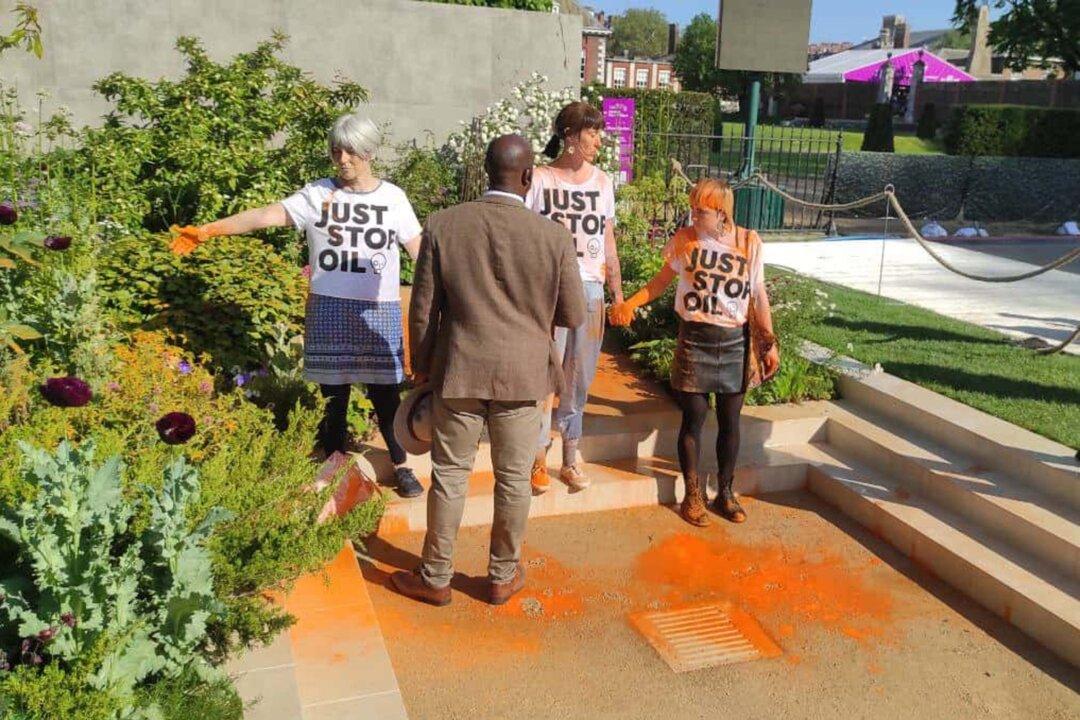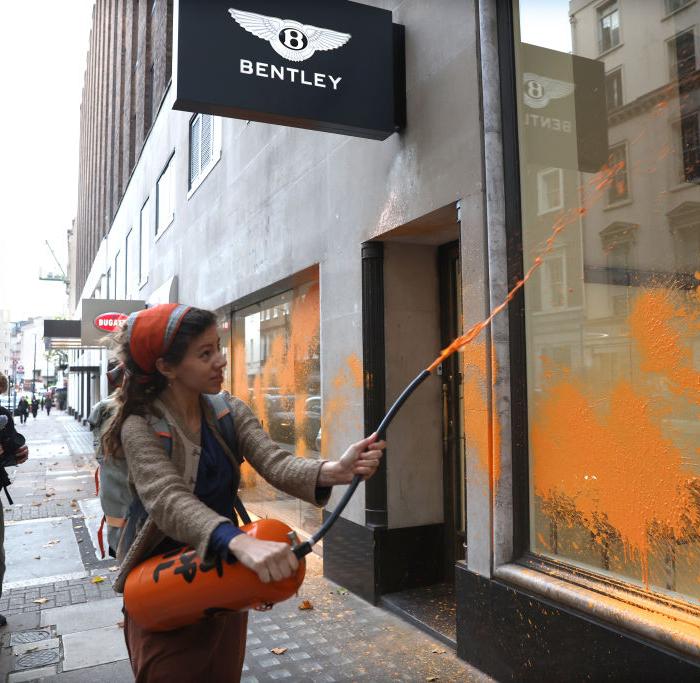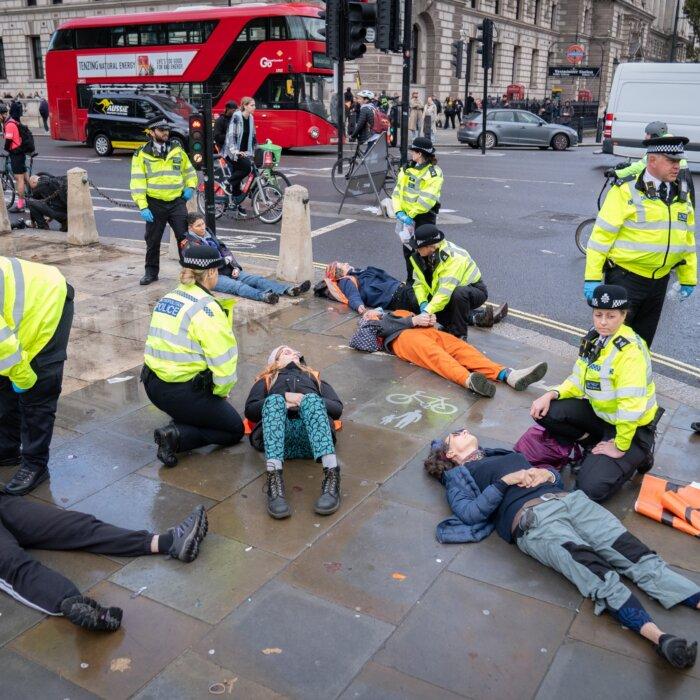The Court of Appeal in London has ruled climate change activists and other protesters cannot use their “political or philosophical beliefs” as a defence if charged with criminal damage.
Three judges ruled a climate change activist’s defence—which led to their acquittal—that a property owner would have consented to damage if they had been aware of the full impact of climate change, was “too remote” to be classed as a “lawful excuse.”
The individual, who can only be identified as XX for legal reasons, successfully used the defence, but Attorney General Victoria Prentis asked the Court of Appeal to review the way the law had been used during the trial.
On Monday the Lady Chief Justice Baroness Carr, sitting with Lord Justice William Davis and Mr. Justice Garnham, ruled the “time, place, and extent” of the damage were the only “circumstances” relevant to the prosecution.
Baroness Carr, the most senior judge in England and Wales, said, “The circumstances would not include the political or philosophical beliefs of the person causing the damage.”
She said: “They would not include the reasoning or wider motivations for the damage. These matters are too remote from the damage. Evidence from the defendant about the facts of or effects of climate change would be inadmissible.”
Protesters Do Not Have ‘Free Rein’ to Publicise Cause in Courts
In the court’s written judgment, Baroness Carr said, “It was not Parliament’s intention … to give protesters free rein to publicise their cause through the criminal courts.”She added said the law “was not intended to afford a defence to protesters based on the merits, urgency or importance of their cause, nor the perceived need to draw attention to a cause or a situation.”
She said, “'Circumstances’ in the phrase ‘the destruction or damage and its circumstances’ do not include the merits, urgency or importance of the matter about which the defendant is protesting, nor the perceived need to draw attention to a cause or situation.”
Ms. Prentis welcomed the ruling, and said, “Climate change is an important issue and, while the right to protest must be protected, it does not give a right to cause serious criminal damage, no matter how strongly held a belief is.”
“Today’s judgment is important as it ends any uncertainty over when a person has a lawful excuse to cause damage because they honestly believed the property owner would consent,” she added.
Attorney General Says Law Needs to Be Applied ‘Consistently’
“It is essential that these cases are dealt with consistently, so we welcome the court’s ruling, which will ensure consistency and give judges much-needed clarity in this important area of law,” she added.During the February hearing Mr. Little said: “We submit that it is being used in a way that was not envisaged and indeed was not intended by Parliament. It leads to the conclusion that this law is being interpreted too broadly and in reality wrongly.”
He said of the property owner, “The fallacy of leaving this defence to the jury in many but not all of these cases is really the risk or danger is what is being focused on is whether they could have consented, rather than whether they would have consented.”
Mr. Little is currently prosecuting Constance Marten and Mark Gordon for gross negligence manslaughter after their baby was found dead in an allotment shed in Brighton last year, but he took a break from that trial in order to handle the Court of Appeal case for the attorney general.
Henry Blaxland, KC, representing XX, had argued: “The consequence is that where the defence was raised, the sole question of fact for the jury is whether the defendant had an honest belief that the owner of the property would have consented to the damage caused. It is not for the jury to determine whether the belief has merit.”







